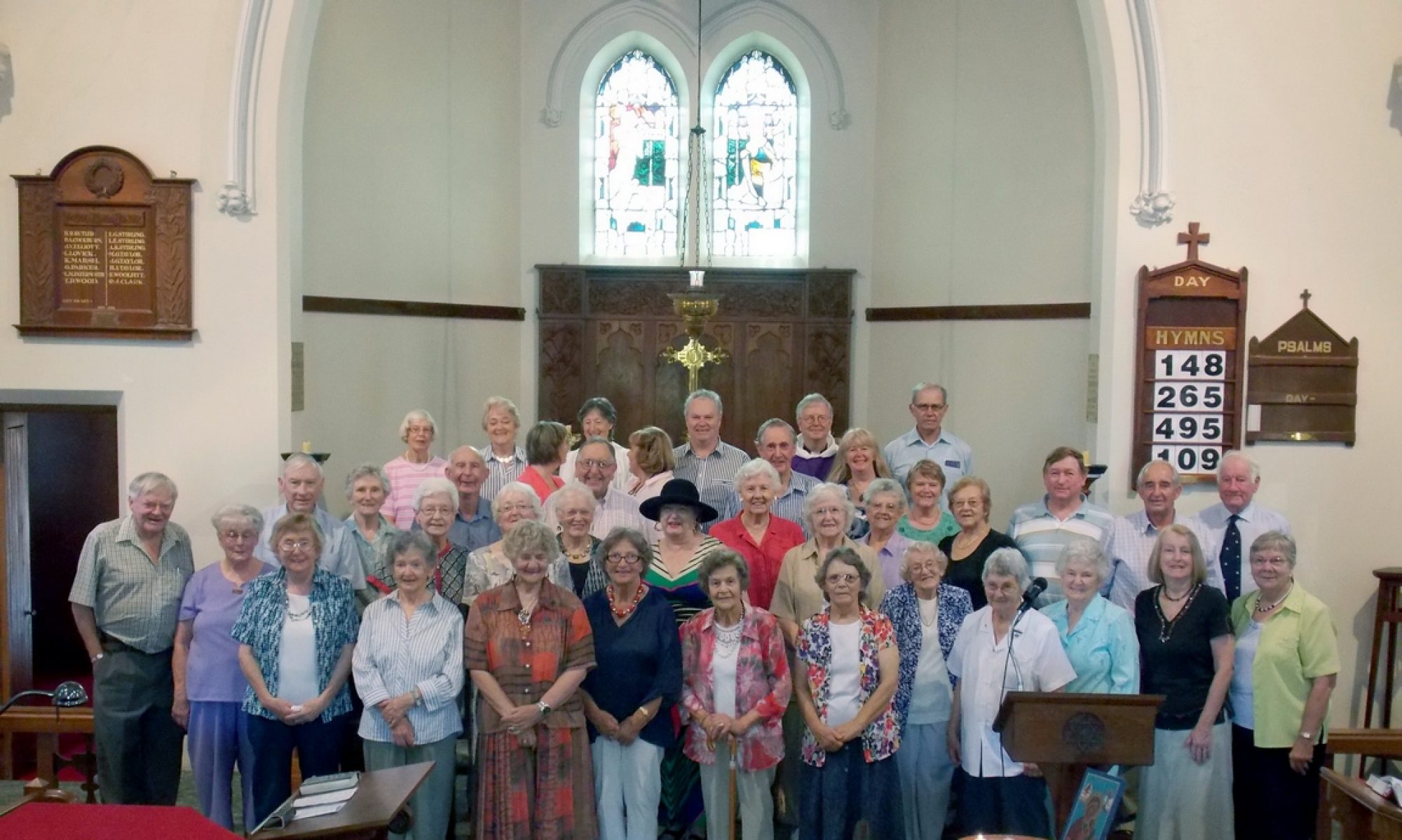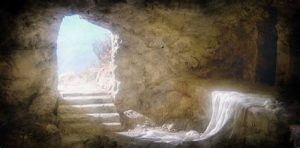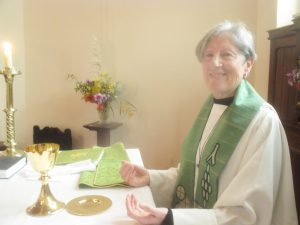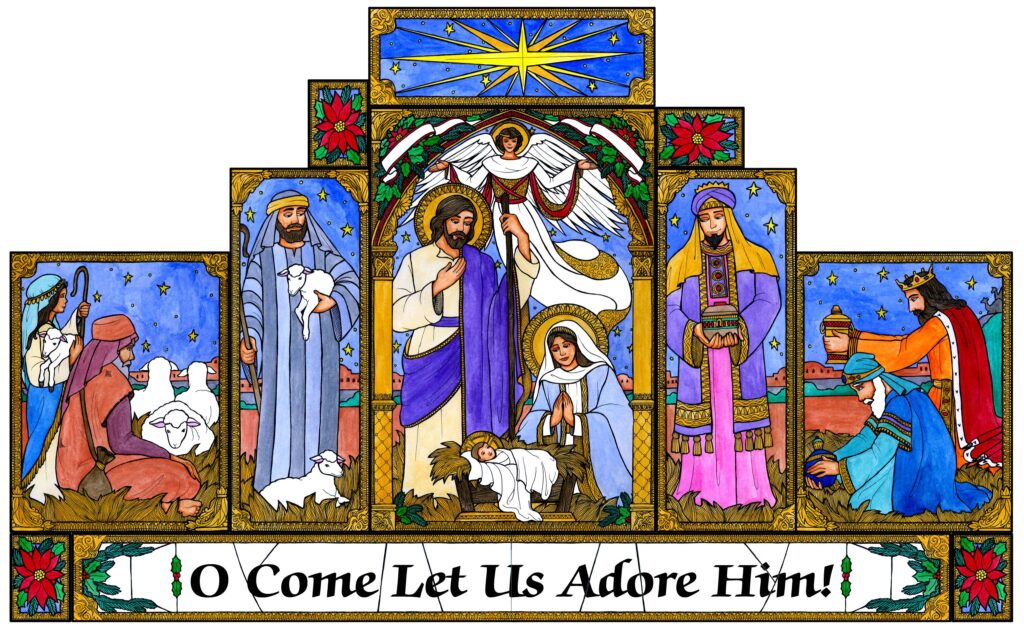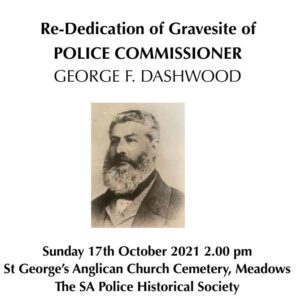Ascension to Pentecost: 29 May – 5 June
We keep this time of prayer because the Church does not yet conform to the will of Christ as expressed in his prayer:
“I ask not only on behalf of these, but also on behalf of those who will believe in me through their word, that they may all be one. As you, Father, are in me and I am in you, may they also be in us, so that the world may believe that you have sent me. . .”
Jesus prayed that his followers would be one in him but what do we find when we look at the actual situation today? There are many different churches in Australia and around the World.
The result is that the witness of Christians is divided and our preaching of the good news of Jesus Christ is not heard clearly. So what should we do about it?
There is a clue in some words of Metropolitan Platon who was a bishop of the Russian Orthodox Church in Kiev, many years ago now. He said: The walls of separation do not rise up as far as heaven.
Instead of concentrating on the things which separate us we should look up above these barriers to God who can lead us into the unity which he desires. This is the reason for the Week of Prayer — Christians of all traditions are asked to look up to God so that they can join together in praying to him for that unity which should be found in those who are united together with his Son.
The first Week of Prayer was held in 1908 as the result of the efforts of two Anglican priests (an American and an Englishman) but it had one major flaw — its object was that all separated Christians should acknowledge the Pope as the head of the Church and become members of the Catholic Church.
This was not acceptable to many Christians, as you could imagine, and it was a French Catholic priest from Lyons who showed how the Week of Prayer could be made acceptable for all Christians.
The Abbé Paul Couturier was born in 1881. He was educated in Algeria and Lyons. He studied theology and was then ordained priest in 1906. He continued his studies and 1909 obtained a Science degree, after which he began teaching maths and science at a Catholic College in Lyons. he remained in this position, except for a few years during World War I, almost to the time of his death in 1953.
However, it is not as a science teacher that we remember him. We remember him as a pioneer of the ecumenical movement — the movement which has as its goal the unity of all Christians. His involvement in this was the result of two main influences.
First, he became concerned for the many Russian refugees (there were about 10 000 of them!) who came to live near Lyons in the 1920s, after leaving their homeland following the revolution in 1917. Here was a group of Christians whose faith could not be denied but who had never been under the jurisdiction of the Pope.
Second, he made contact with a Benedictine Priory at Amay which was making a special effort to promote understanding between Christians. It was here that he first learned about the Week of Prayer and formed the desire to introduce it back home in Lyons, but he realized that it would be difficult for all Christians to join in it as it was at that time.
As a result, from 1933 when he promoted its observance for the first time until it became a world-wide movement at the time of his death, Paul Couturier stressed that what we were praying for was:
the Unity of the Church which Christ desires
and by the means which he chooses.
This is a prayer which everyone can make, in spite of our divisions. It is a prayer which does not limit us to any particular scheme of the reunion of Christians but which does open us up to the leading of the Spirit and may result in Christians being led to particular schemes of co-operation or reunion.
The original week was held in January, but when it was introduced to Australia in the 1950s it was thought that this was an unsuitable time for us and the period from Ascension Day to Whitsunday was chosen instead. For many years the week was promoted personally by the Abbé Couturier and in Australia by unofficial committees in each State. It was then taken over by the Councils of Churches.
The spirit which Paul Couturier showed in his dealings with other Christians and which he recorded in his writings about the Week of Prayer was a most significant influence on the lives of many people whom he met. It received wider recognition amongst Anglicans when the Bishops meeting at the Lambeth Conference in 1958 recommended the observance of the Week of Prayer in the way in which he had taught that it should be kept. He also influenced the thinking of his own church and the Decree on Ecumenism of the Second Vatican Council owes much to him.
However, all that is history! It is now up to us to do our part. First by making sure that we do all that we can to ensure that we are one in love with the members of our own congregation and parish. Second by adding our prayers to the prayers of all Christian people, whatever their tradition, so that the walls of separation will be overcome.
Let us pray that:
We may all be one
according to the Will of Christ
and by the means which he chooses.
